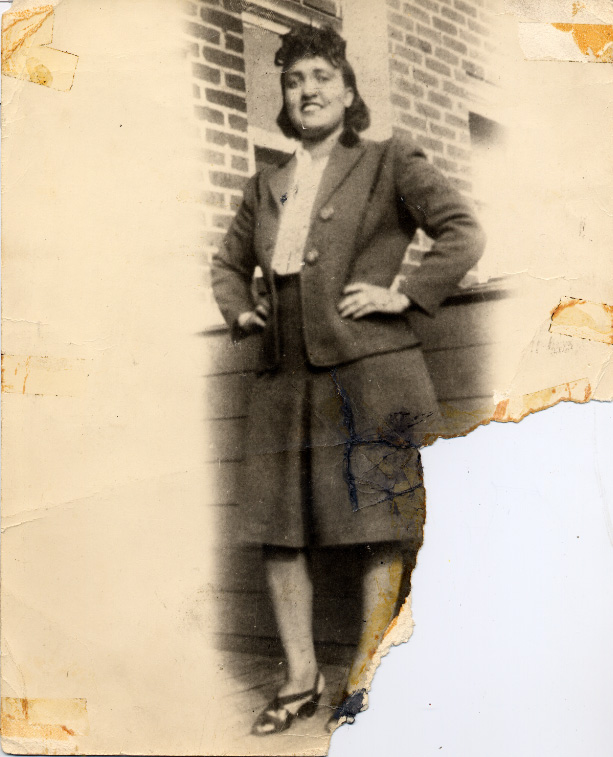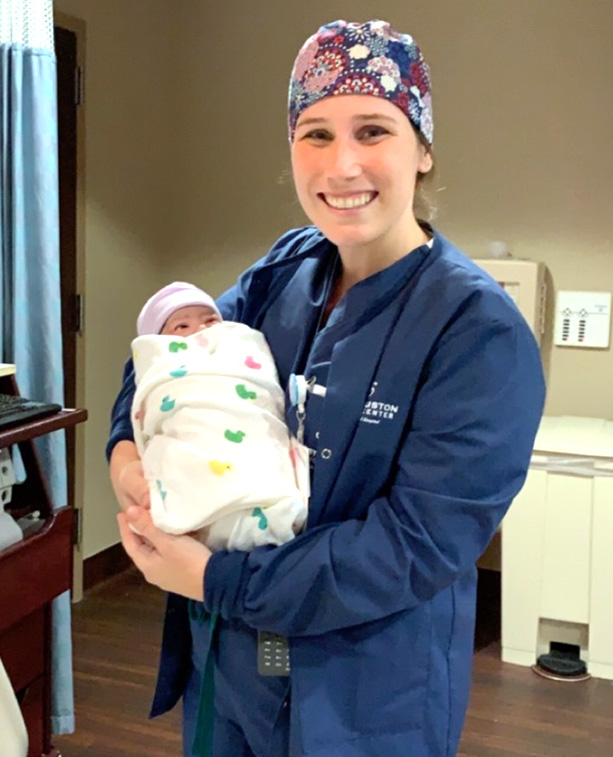
Scholarships
These OMG Scholarships were created in 2020 and first awarded in 2021 during the Covid pandemic. With this scholarship, the mothers of OMG created an avenue where we can reach out to our own and proactively provide.
We invite any resident or fellow mother who is currently enrolled in an Ob-Gyn residency or fellowship in the following: Maternal Fetal Medicine (MFM), Minimally Invasive Gynecologic Surgery (MIGS), Gynecology-Oncology (Gyn-Onc), Reproductive Endocrinology and Infertility (REI), Female Pelvic Medicine and Reconstructive Surgery (FPMRS), Pediatric Adolescent Gynecology (PAGS) or Family Planning (FP), to apply for our scholarships.
Three scholarships of $10,000 each will be awarded based on extenuating financial hardship with extra consideration on hardship due to minority ethnicity or 1st generation college graduates. The payments will be made directly to the institution, not the individual. For example, if the need is child care, the payment will be made to the childcare facility, not the individual. Those with little financial need should not apply.
2023 OMG Scholarship Recipients
Areli Saucedo Baza, MD
2023 OMG Scholarship in Honor of Lucy, Anarcha, and Betsey
Cyra Cottrell, MD
2023 OMG Scholarship in Honor of OMG Thanksgiving Gratitude
Jasmin Abdeldayem, MD
2023 OMG Scholarship in Honor of Adeline Fagan
Brittany Nelopae, MD
2023 OMG Scholarship in Honor of Henrietta Lacks
OMG Scholarship in Honor of Henrietta Lacks
Courtesy of the Lacks Family
This OMG Scholarship in Honor of Henrietta Lacks commemorates her journey from succumbing to cervical cancer at such a young age to richly blessing the world and revolutionizing modern medicine through the use of her immortalized HeLa cells.
We, the mothers of OMG and physician champions of women, hope that through this scholarship, we may be able to memorialize Ms. Lacks, who has been under recognized and under commemorated for the progresses made through her cell line. This scholarship will provide financial assistance to a mother physician with need as she completes her Ob-Gyn training.
Read Biography
The immortal Henrietta Pleasant Lacks was born August 1, 1920 in Roanoke, Virginia. After the death of her mother, she moved to Clover, Virginia, to live with her paternal grandfather. She married David “Day” Lacks in 1941, and the couple had 5 children. They moved to Turner Station, Maryland, in search of economic security in the booming factory of Bethlehem Steel. In 1951, Henrietta Lacks went to Johns Hopkins Hospital for treatment for an unknown illness. Mrs. Lacks had discovered “a knot” in her abdomen (Rebecca Skloot). After several hospital visits, she died of cervical cancer on October 4, 1951, at the age of 31 years.
Two days after her death, a lab attendant discovered that cells taken from her cervical cancer, called HeLa cells (named for the first of letters of her first and last names), were growing. Led by Dr. George Gey, this marked the first instance of continuous growth of human cells outside the body. The HeLa cells would go on to transform modern medicine. One of the more immediate results was the development of the Polio vaccine. They were also used in the development of the cancer drugs tamoxifen as well as other chemotherapeutics. Advanced research for influenza, Parkinson’s disease and leukemia cures were major contributions developed from the HeLa cells. Further research, which led to gene mapping, cloning and in-vitro fertilization are also included among contributions made by HeLa cells. HeLa cells were used to test the effects of atomic radiation; they were sent into outer space for experimentation on zero gravity. These immortal cells are still the highest-ranking research cell line used throughout all major medical research complexes around the world. To date, the “easy-to-grow ‘HeLa’ cells have been used in more than 76,000 studies” (“Privacy Pact” 61). Her cells were even used to develop the human papilloma virus (HPV) vaccine which prevents the very type of cancer that took her young life.
Regrettably, it took some twenty-five years before the Lacks family received any knowledge of this immortal contribution their beloved wife and mother was making to medical science. The Henrietta Lacks story raises ethical, racial, and socio-economic issues related to the medical industrial complex.
Biography adapted from https://henriettalackslegacygroup.org/about-henrietta/ with permission from the Henrietta Lacks Foundation.
OMG Scholarship in Honor of Adeline Fagan
Courtesy of the Fagan Family
This OMG Scholarship in Honor of Adeline Fagan commemorates her journey through childhood dreams shaped by her early experience as a patient that inspired the drive and determination to become a stellar young physician, who made the ultimate sacrifice to and through her calling. We, the mothers of OMG, hope that through this scholarship, we may be able to provide for one of our own, who may be struggling through a difficult time during their training to become an Ob-Gyn.
Read Biography
Adeline Marie Fagan, MD was born on Feb 4, 1992, in Syracuse, NY, and was the second of four daughters to Mary Jane Abt-Fagan and Brant Fagan. From the age of five, she ran around the house with a toy stethoscope around her neck. After a soccer injury at age 11, Dr. Fagan developed Reflex Sympathetic Dystrophy, a neurological disease which confined her to a wheelchair for a period of time. A pediatric orthopedist physician diagnosed her condition and explained this diagnosis directly to her so she could understand. She was so impressed by this experience that it cemented her desire to become a physician.
Dr. Fagan was a servant leader throughout her life. She attended Saint Joseph’s University (SJU) in Philadelphia, PA, graduating Phi Beta Kappa with a Bachelor of Science in Biology. She was a charter member of the SJU chapter of Phi Sigma Pi National Honor Fraternity. During her gap year before entering medical school, she became a Certified Nursing Assistant (CNA) which enabled her to care for her non ambulatory grandmother and learn more about patients in a hospital setting. She received her medical training at Jacobs School of Medicine and Biomedical Sciences at SUNY University at Buffalo.
Always intent on helping others, Dr. Fagan traveled to Haiti on medical outreach trips during each of her four years in medical school. In her last medical school rotation, she found OB/GYN, a discipline that married working with women and babies, her love of helping others, a need for patient education and surgical procedures. In 2019, she moved to Houston, TX for her Ob-Gyn residency at HCA Healthcare West, where she quickly blossomed as a caring and dedicated OB/GYN. A work exposure to Covid-19 resulted in her contracting this infection. On September 19, 2020, after a long battle, Dr. Fagan passed away.
Dr. Fagan was a champion of all, especially those less fortunate. She advocated for equality, especially in healthcare, both in the United States and for those abroad. In addition to being a doctor and helping others, Dr. Fagan loved her extended family, friends, music, and her dog, Ruby. She always looked forward to holidays and birthdays, a time to sit and laugh with the rest of the family and friends. Dr. Fagan was always planning and looking forward to the next trip, either with one or more of her sisters, her entire family, or to help the Haitian community she grew to love. Her musical tastes ran from ’80’s pop to country to present day artists, and she knew all the words.
OMG Scholarship in Honor of Lucy, Anarcha, and Betsey

This OMG Scholarship in Honor of Lucy, Anarcha, and Betsey commemorates their sacrifice to women and medicine through the countless experimental surgeries needed to restore quality of life complicated by a vesicovaginal or rectovaginal fistula. We see those who are sacrificed, marginalized, made nameless. We, the mothers of OMG and physician champions of women, hope that through this scholarship, we may be able to memorialize Lucy, Anarcha and Betsey, who have been under recognized and under commemorated for the progress made through their calamity. This scholarship will provide financial assistance to a mother physician with need as she completes her Ob-Gyn training.
Read Biography
Lucy, Anarcha, and Betsey were three Black women who lived in Alabama during the 1840s. Lamentably, they all suffered terribly from vesicovaginal fistulas. Anarcha also suffered from a rectovaginal fistula.
During that time period, vesicovaginal and rectovaginal fistulas were much more prevalent, morbid complications from obstructed labor. After days of labor with fetal head impaction, the fetus would die, macerate, and eventually deliver. Unfortunately, in these days before cesarean section became readily available, this extended devascularization of the vagina would lead to necrosis and large vesicovaginal and/or rectovaginal fistulas developed. In the wake of the sorrow due to losing a child, the trauma of extended labor and delivery, this new insult of constant urinary and/or fecal incontinence rendered any grieving mother in a most abysmal state. She carried with her the odor of waste, the constant, wet skin which would lead to skin breakdown and infection. In an era before antibiotics, air conditioning, indoor plumbing, or even toilet paper, this condition was truly feared among women.
Unfortunately, Lucy, Anarcha, and Betsey were living with these conditions as well as the tribulation of being enslaved in the Deep South. With minimal autonomy and no right to consent of their own accord, these women became the “Mothers of Gynecology.” Their bodies were sacrificed to medicine on the operating table as they were provided to a physician ambitious to learn how to repair this previously hopeless complication of childbirth. Although eventually successful, the price was 4 years of repeated operations on these and other enslaved women affected by vesicovaginal/rectovaginal fistulas who sacrificed their bodies to this effort. Anarcha underwent some 30 operations before her rectovaginal fistula was cured. They did not have anesthesia, they could not consent because they were enslaved, and the only ones that have names are Lucy, Anarcha, and Betsey.
As we consider the ethics of experimental surgical treatment on enslaved women, we are reminded of other times medicine has missed the mark and failed to protect those most vulnerable. We think about what is happening now. We know that we continue to have higher maternal morbidity and mortality rates for our Black mothers. We know that we continue to have higher morbidity and mortality rates for our Black newborns. As we reflect on our role and our contribution to these disparities, we recommit everyday to learn more about our bias, to speak up for those diminished by the medical system, and to provide ethical, equitable care for all.
Applications are now closed.
Applicant Eligibility
- Resident mother in Ob-Gyn residency or fellow mother in MFM, MIGS, Gyn-Onc, REI, FPMRS, PAG or Family Planning with financial need.
- Scholarship renewal is not available but reapplication is not prohibited.
- Applicant will relay their financial need by:
- 1-page personal statement or 5 minute video documenting how this scholarship would benefit them and their family.
- Document their indebtedness through their loan statements/financial statements/etc to verify how their indebtedness is impacting their financial well-being.
- Document the amount from the institution to be paid to relieve the financial hardship.
- Applicant will provide her contact information and CV:
- Use for identification purposes
- Not used to review merits
Applicants may not be related to any person who is a board member or part of the scholarship committee of OMG.
If selected for a scholarship the awardee must, at minimum, produce a one paragraph statement of how the scholarship was of benefit. No overly personal details are required, but providing a statement of benefit for sharing with the OMG membership who provide the financial support is a requirement for distribution. Family photos are also welcome.



